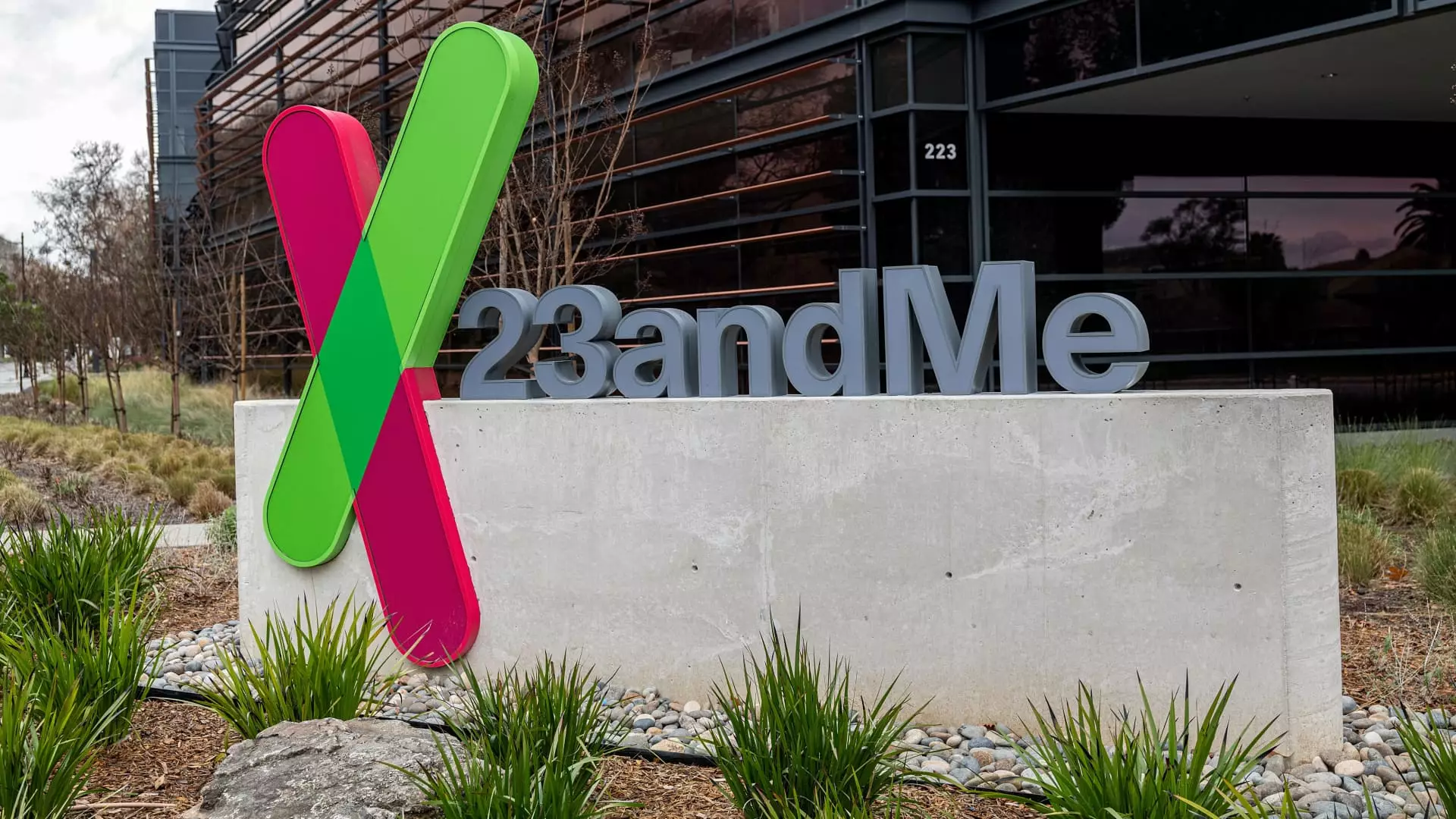The recent announcement of 23andMe filing for Chapter 11 bankruptcy protection is a clarion call for current and former customers regarding the security of their genetic data. While the company maintains its commitment to customer privacy and plans to keep selling its DNA testing kits, the underlying truth is that a financial crisis can create vulnerabilities in how consumer data is managed. The asset sale process, which includes its extensive genetic database, raises significant concerns about who will gain access to this sensitive information and how it will be used in a world where cyber threats loom large.
In an age where genetic data is often viewed as the “blueprint of life,” the implications of mismanagement cannot be understated. Each individual’s genetic sequence is unique, making it irreplaceable and fundamentally tied to personal identification. With recent breaches, including a hack that exposed the data of nearly 7 million users, one has to wonder how a financially distressed company can promise the security of its users’ sensitive information.
The Fragility of Genetic Data Security
Sensitive data privacy has quickly become a critical issue bounded by discussions about regulation and ethical standards. After the unprecedented data breach in October 2023, the alarm has been sounded not just by cybersecurity experts, but also by state officials like California Attorney General Rob Bonta. His public advisories suggest that customers take immediate action by considering the deletion of their genetic profiles from 23andMe. This is particularly concerning, as genetic data often cannot be fully anonymized, creating a widespread panic over identity theft and fraud.
There’s a stark irony in the fact that some customers enroll in genetic testing services for the sake of familial connection and heritage but are now left dealing with the repercussions of compromised security. As the digital landscape continues to evolve, the genetic data held by companies like 23andMe proves to be a double-edged sword: a source of enlightenment and personal discovery, yet also a precarious source of potential exploitation.
Addressing Privacy Concerns: A Path Forward
The conversations surrounding 23andMe’s bankruptcy outcomes stress the importance of transparency in how companies handle genetic data. The company’s FAQ states that any new buyer will have to comply with legal standards regarding data management. Yet, this statement feels more like a veneer, glossing over the genuine fear of the unknown. Cybersecurity expert Adrianus Warmenhoven aptly describes genetic data as a cornerstone of our biological identity, urging individuals to act and be proactive about their personal information.
It’s crucial to recognize that every user has control over their own genetic data—even amidst corporate turmoil. The instructions provided by 23andMe for deleting accounts reiterate this reality, laying out a straightforward path for those who wish to reclaim their privacy. However, many users may find the process tedious or take it for granted; thus, it is vital to emphasize the ease of reclaiming their data rights in light of potential future misuse.
A Call to Action for Individuals
The situation presents a unique opportunity for individuals to rethink their relationship with personal data. At a minimum, users should regularly audit their digital footprints and consider the companies they align with. Mindfulness about sharing genetic information must become a habit, especially as the digital landscape continues to expand and evolve. Engaging with identity protection methods and staying informed about the privacy practices of companies is more crucial than ever.
Moreover, the concept of active consent has never been more relevant. Users should continuously evaluate the permissions they grant to various platforms and ensure they withdraw access when no longer necessary. Deleting non-essential accounts can also minimize risks associated with being a part of multiple databases.
The journey through genetic exploration should not become a path to vulnerability. It’s essential that as consumers, we remain vigilant and make calculated decisions about how our data is utilized within the fast-paced digital economy. What was once an engaging journey into personal ancestry has, in light of the current situation, risked becoming a venture into chaos unless we all take action now.

